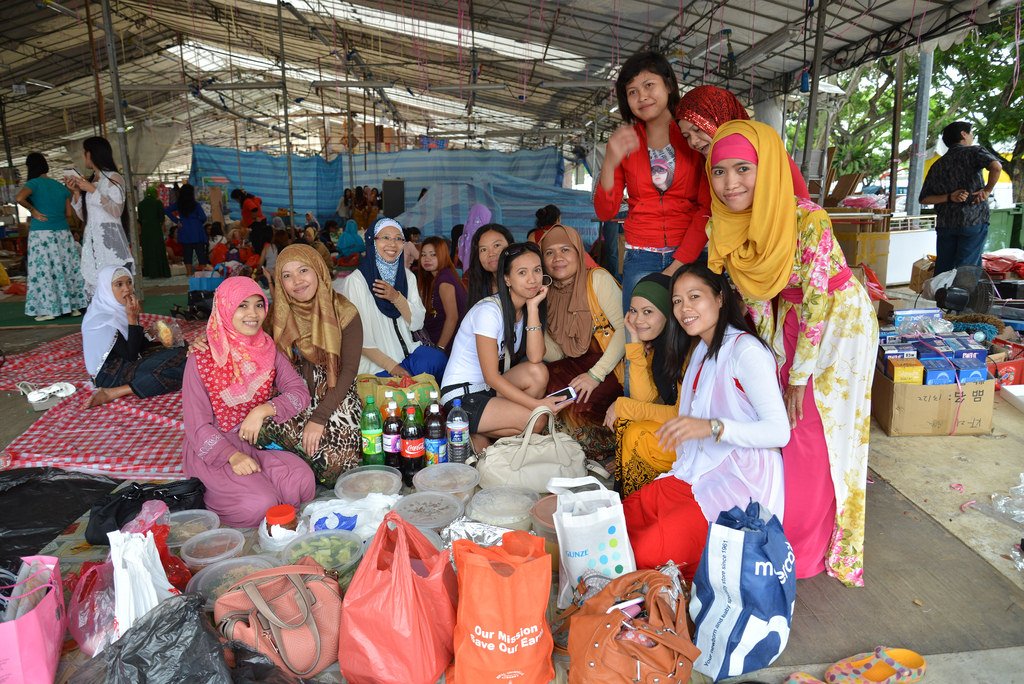Entrusting someone with the care of our children is in itself a pretty big leap of faith. Part of the job of being a parent is to make sure that our little ones are safe and always well taken care of. No matter how much we trust our domestic helpers, it is natural to worry – especially when we are away most of the day – and wonder whether our kids are well cared for. It can be difficult to know for sure that our domestic helpers are doing well with the kids without resorting to extreme measures i.e. nanny cams – which can have counterproductive effects and jeopardise the trusting relationship – and keeping up with our expectations.

Here are some tips to help you find out if your helper is taking good care of your children:
Pay attention to your children’s behaviour.
A child’s behaviour and mood swings are pretty good indicators. Be careful not to read too much into this though: keep in mind that children need some time to adjust to a new caregiver and certain babies can suffer from separation anxiety. If after about 2 months – which is a relatively fair adjustment period – your children still don’t want to be left alone with your helper or cry every time you leave them together, try to find out more as this might indicate that something is not right. If you detect any sudden changes or signs of sadness, anxiety or fear, it is worth looking into it more closely. If your children are old enough to communicate, do not hesitate to probe them for feedback.
Observe your children’s interactions with your domestic helper.
When children feel safe, comfortable and are well nurtured, they tend to develop bonds and get attached. Keep an eye on how they react to your helper’s presence. Do they give her big smiles almost every time she passes by? That’s surely a good sign! If, however, no bond is being developed after quite some time, you might want to take a closer look and try to identify the root causes. While it might just be that there is no chemistry between them (it happens!), sometimes it can mean that something is just not right.

Ask your domestic helper about your kid’s daily routine.
Her answers – or lack of – should be able to tell you plenty. A good caregiver will understand why you want to learn more about how your kids spend their time when you are not around and will be open to sharing with you about it as much as she can – no matter how limited her communication skills are. If she is reluctant to share details or appears to be secretive about certain episodes, you might want to look into the matter more closely.
Take cues. If your child appears to be the victim of too many accidents
You should definitely question your helper about that to understand what is happening when you are not at home. Frequent accidents might indicate that your domestic helper is not keeping her eye on them as she should and might even leave them unattended on occasions. Be vigilant as in some cases, frequent accidents, injuries and bruises might point out to neglect, mistreatment or even abuse. Those should be considered as red flags. Go to the bottom of things. If you have any reason to believe that your children are being mistreated or abused in any way, do not hesitate to contact local authorities.

Observe your child’s eating and sleeping patterns.
If they look overly tired or hungry, it might be a clue that they are not being properly fed or put to sleep at regular times. Question your helper about it and observe her reaction.
Inspect your child’s clothes, diapers, skin and toys.
Children tend to get messy way too often – that’s a given – but that’s no reason to leave them dirty and unkempt. If you notice that your child often has rashes, needs changing or cleaning up, it surely is a sign that your helper isn’t doing her job as well as she should. You might want to consider having a little talk with her and reminding her about the basics when it comes to caring for a baby.
If your gut is telling you that something is not right, it might be time to talk to your helper to find out what’s going on when you are away.





